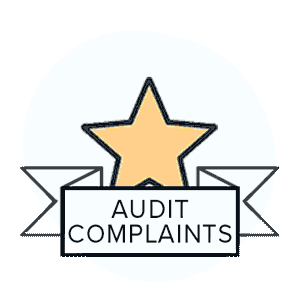CA SCIF Baits & Switches MD Out of Payment

Once again, California’s State Compensation Insurance Fund (SCIF) may profit by exploiting a flaw in California’s Independent Bill Review (IBR) system.
SCIF initially denied payment for treatment provided to an injured worker by citing insufficient supporting documentation. When the doctor submitted a Second Review appeal with the documentation SCIF requested, SCIF inexplicably denied payment for insufficient documentation, again. With no other choice, the doctor paid $180 to request IBR.
SCIF sent a letter to Maximus (the entity which conducts IBR in California) disputing the doctor’s IBR request. In its letter, SCIF pulled the ol’ denial switcheroo, citing an entirely new reason for the denied payment: services were not authorized. Essentially, SCIF baited the doctor with a false denial reason, then switched the reason only after the doctor filed for IBR.
What does this mean for California workers’ comp?
If the dispute is ruled ineligible for IBR as SCIF requested, then this switcheroo will be an effective IBR hack that any claims administrator can employ as follows:
- Deny payment (with a false reason).
- Doctor uses their single Second Review appeal to address the (false) denial reason cited.
- Deny the Second Review appeal (with any reason).
- Doctor pays $180 to request IBR to dispute the (false) denial reason(s).
- Send letter to Maximus disputing IBR and cite an entirely new denial reason that renders the IBR dispute ineligible (like authorization).
The method above is a 100% free way for claims administrators to fleece doctors — while forcing doctors to pay $180 for the privilege of being fleeced.
SCIF’s Bait & Switch
In response to the bill for treatment rendered, the doctor received an Explanation of Review (EOR) from SCIF denying payment. In the section of the EOR outlining the reasons for the denial, SCIF claimed the doctor’s reports did not justify the charges as billed, stating:
“THE REPORT DOES NOT SUBSTANTIATE THE RVS/CPT DEFINITION OF THE LEVEL OF SERVICE BEING BILLED”
“THE REPORT OR NOTES WERE NOT ATTACHED.”
“The submitted documentation for an evaluation and management visit does not meet two of the three required components of medical decision-making…”
The doctor submitted a Second Review appeal, complete with every bit of required documentation. SCIF denied the Second Review appeal and refused to pay the bill in full, again citing issues with supporting documentation.
The doctor requested IBR to dispute SCIF’s twice-alleged (and bogus) incomplete documentation payment denial.
But out of nowhere, SCIF sent Maximus a letter claiming that the dispute was not eligible for IBR because the services were not authorized. Essentially, SCIF presented a new denial reason to Maximus, one never mentioned to the doctor:
“In this case the provider of this dispute failed to request authorization for psyche testing. The issue of liability shall be resolved before seeking independent bill review.”
This isn’t the first time SCIF has tried to avoid IBR by pivoting their denial reasoning. Nevertheless, this raises a few important questions for the DWC to consider:
- If there can only be one Second Review appeal and one IBR request for any given bill, what are doctors supposed to do when the claims administrator changes the reason for denial?
- If SCIF believed the services weren’t authorized, why didn’t SCIF deny the bill on authorization grounds in the first place?
The claims administrator is responsible for specifying all reasons for denying payment on the initial EOR, because California law allows a provider only a single Second Review appeal to dispute an incorrect reimbursement. Claims administrators cannot be allowed to keep backup denial reasons up their sleeves in case the provider submits a Second Review appeal or requests IBR.
To protect doctors from potential stunts by claims administrators, the DWC and Maximus should implement a rule disallowing changes of denial reasoning midway through the Second Review and IBR process.
If the charges as billed are not valid, claims administrators can make their case on the first EOR. No do-overs.
Protect your practice revenue. Harness the power of daisyBill software, data, and expertise for faster, better workers’ comp billing.
GET IN TOUCH
DaisyBill provides content as an insightful service to its readers and clients. It does not offer legal advice and cannot guarantee the accuracy or suitability of its content for a particular purpose.





.gif)

.gif)